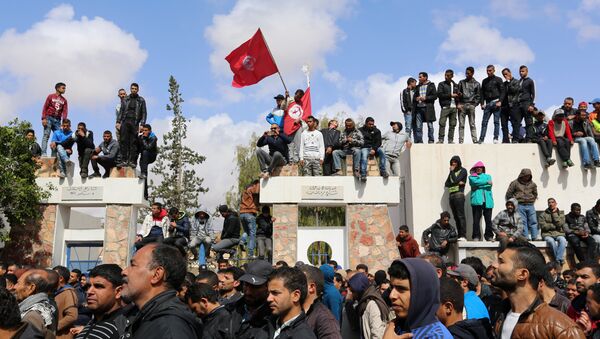Tunisia has seen days of street protests against hikes in value-added tax and social contributions introduced earlier this month as the government grapples with a growing budget deficit and the need to meet its foreign debt obligations.
“Seven years after the revolution that led to the ouster of President Zine El Abidine Ben Ali, people want to see its fruits and have better living conditions. They took to the streets because the existing political parties are jockeying for power instead of tackling the problems facing the country and its people, who actually brought them to power,” Abu Bakr al Ansari told Sputnik Arabic.
He added that in order to ease the tensions, the country’s political political parties should reconsider their policies and listen to the needs of the people, something they can’t ignore.
“However, this theory simply holds no water because today, just like seven years ago, people are demanding jobs, freedom and respect,” Farid al-Alibi emphasized.
He added that the goals set out by the “Jasmine Revolution” of 2010-2011 were never realized, people have seen their living conditions go down and tension and misunderstanding between themselves and the powers-that-be grow exponentially.
In the past few years, the North African country has been rocked by large-scale demonstrations held each January, which marks the anniversary of the Jasmine Revolution that toppled President Ben Ali.
Despite its relatively smooth democratic transition, Tunisia is still experiencing economic and political turbulence.
READ MORE: Staying United: How Civil Protests in Tunisia Can Induce Terrorism



